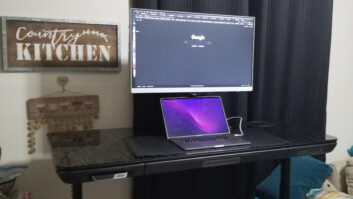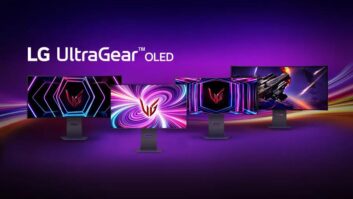New York — Industry reaction is decidedly mixed to Blockbuster’s $1 billion-plus cash bid for Circuit City.
While some observers gave the concept kudos for its convergence of content and hardware, others told TWICE they failed to see a tangible upside to the consolidation.
The video rental chain went public with its hostile acquisition plan last week after Circuit City refused to fully open its books during due diligence.
According to Blockbuster CEO Jim Keyes, the deal would help transition his company to a digital-download model through the sale of proprietary, content-enabled devices at both chains, ostensibly leveraging its recently acquired Movielink download service, enabling the chain to compete against coming HD broadband services.
Blockbuster would also benefit from Circuit’s recently overhauled logistics systems, he said in a conference call, and could close stores in overlapping locations.
Conversely, Circuit could vastly expand its footprint by selling CE products and Firedog services through Blockbuster’s 5,000 U.S. stores, he argued, and Circuit’s shareholders — including proponent Mark Wattles, who owns 6.5 percent of its stock and has been agitating for change — could realize a significant payout.
The deal also has the backing of Blockbuster’s board, including majority shareholder Carl Icahn. The billionaire investor, who led the company in a friendly bid to buy Wattles’ Hollywood Video chain three years ago, and more recently pressured Motorola to split off its handset operations, could help finance Circuit’s acquisition, Keyes intimated.
But industry observers, and more significantly, Circuit City, weren’t buying it. The struggling CE chain said it was doubtful that Blockbuster could swing the $1 billion-plus offer, to be whittled together through a combination of debt and equity, and had other “fundamental questions” about how the deal would be structured. Until those issues are settled, it said, the company will keep its innermost workings to itself during due diligence, and is advising its shareholders to take no action while the board and financial advisor Goldman Sachs continue to evaluate the proposal. Over the past six years, Circuit’s board has rejected richly-priced buyout offers by Mexican billionaire and former CompUSA owner Carlos Slim Helu, and Highfields Capital Management, a hedge fund.
Some industry observers contacted by TWICE were also unsure of the deal’s merits. “Absent the short-term accretive benefits, it’s a questionable marriage,” observed Dave Workman, executive director of the Progressive Retailers Organization (PRO) Group buying organization and former CEO of Wattles’ Ultimate Electronics chain. “I’m not really sure where the benefit comes from. On the surface, it doesn’t appear to be a match that brings a lot of strategic value to either company.”
In a larger context, Workman said the deal signals that “the CE industry is going into a period of consolidation” along with other business sectors. “I think we’ll see more unexpected mergers, acquisitions and, unfortunately, closures over the next 24 to 36 months.”
Steve Baker, industry analysis VP for The NPD Group, was also skeptical. “I can see some logic from the product and industry trend perspective of integrating content and hardware. But from a retail perspective, I’m struggling to see why it has to be one company to make that work.”
Indeed, the deal could provide Circuit with better ways to access content, and give Blockbuster a platform for selling pre-built devices that deliver it, much like the Kindle e-book from Amazon.com. “Kindle is an example of a closed system that drives traffic back to the retailer, and for Circuit, traffic is an issue,” Baker said. “But then why not just work together with Circuit, or a phone company or a cable company to do that?”
Blockbuster tested an in-store CE kiosk program with RadioShack in 2001, and continues to sell CE accessories and gaming hardware and software in its stores.
Others see more of an upside to the merger. Richard Glikes, executive director of the Home Theater Specialists of America (HTSA) buying group, believes a buyout would give Blockbuster a way out of physical media; would allow Circuit to recapture some of the younger consumers it has lost to Best Buy; and would provide both businesses with greater combined brand exposure.
Fred Towns, senior VP of CE distributor New Age Electronics, thinks an acquisition could be “very positive for the industry. Blockbuster is customer focused and has a good reputation, and Circuit City would benefit from the additional resources to grow the consumer electronics business.”
On the downside, Towns said, “Circuit City would be much healthier if they run on their own. If Circuit City stores were to be converted into Blockbuster stores where movies are first and foremost and technology is an afterthought, then I see that being a potential concern.” — Colleen Bohen contributed to this story













